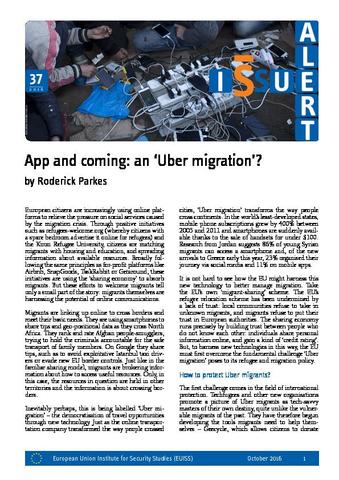You are here
App and coming: an ‘Uber migration’?

European citizens are increasingly using online platforms to relieve the pressure on social services caused by the migration crisis. Through positive initiatives such as refugees-welcome.org (whereby citizens with a spare bedroom advertise it online for refugees) and the Kiron Refugee University, citizens are matching migrants with housing and education, and spreading information about available resources. Broadly following the same principles as for-profit platforms like Airbnb, SnapGoods, TaskRabbit or Getaround, these initiatives are using the ‘sharing economy’ to absorb migrants. But these efforts to welcome migrants tell only a small part of the story: migrants themselves are harnessing the potential of online communications. Migrants are linking up online to cross borders and meet their basic needs. They are using smartphones to share tips and geo-positional data as they cross North Africa. They rank and rate Afghan people-smugglers, trying to hold the criminals accountable for the safe transport of family members. On Google they share tips, such as to avoid exploitative Istanbul taxi drivers or evade new EU border controls. Just like in the familiar sharing model, migrants are brokering information about how to access useful resources. Only, in this case, the resources in question are held in other territories and the information is about crossing borders.